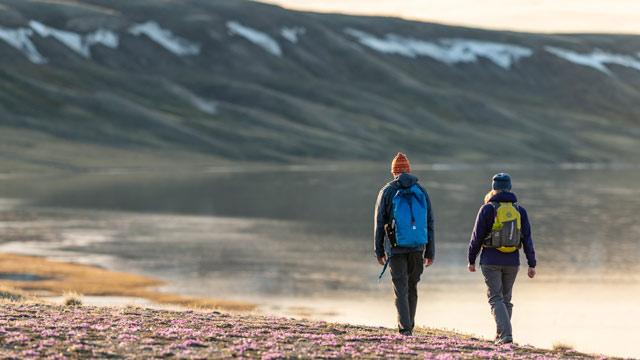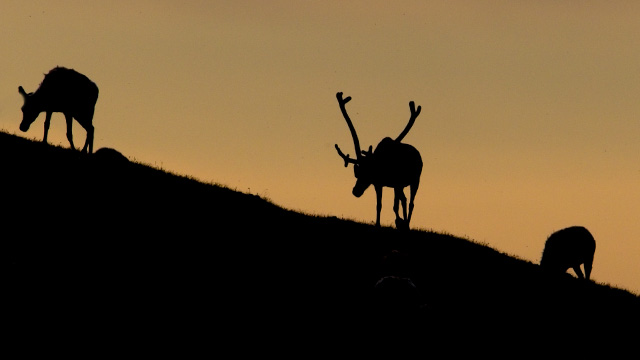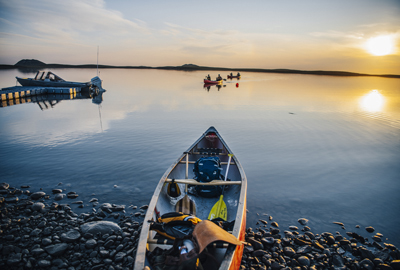
Pingo Canadian Landmark
 Using recreational drones in Pingo Canadian Landmark is prohibited. Operating a drone within park boundaries may face law enforcement action and a fine of up to $25,000.
Using recreational drones in Pingo Canadian Landmark is prohibited. Operating a drone within park boundaries may face law enforcement action and a fine of up to $25,000.
The Pingo Canadian Landmark protects a unique arctic landform: ice-cored hills called pingos. Rising out of the flat tundra, pingos provide a distinctive backdrop to the community of Tuktoyaktuk, Northwest Territories.
The Pingo Canadian Landmark features 8 of the 1350 pingos found in the region, including Ibyuk Pingo. Ibyuk is Canada's tallest and the world's second-tallest pingo. It reaches 49 metres (about 161 feet) in height and stretches 300 metres (about 984 feet) across its base.
For centuries, pingos have acted as navigational aids for Inuvialuit travelling by land and water. They are a convenient height of land for spotting caribou on the tundra or whales offshore.
Featured things to do:
Stewardship and management
Pingo Canadian Landmark protects a unique arctic landform: ice-cored hills called pingos. Rising out of the flat tundra, these hills provide a distinctive...
Activities and experiences
Take a tour, Paddling, Wildlife Viewing, Red Chairs
Plan your visit
Visitor Information, Facilities and Services, Aircraft use, Maps
Environment
Climate, Permafrost, Pingo formation, Geology
History and Culture
Reindeer herding, Cultural landscape, Harvesting at the landmark
Important Bulletins
Important announcements, notifications, and active superintendent orders.
Safety and guidelines
Learn how to stay safe.
Contact us
Tel: 867-777-8800
Fax: 867-777-8820
Email: infoinuvik-inuvikinfo@pc.gc.ca
Hours of operation
Accessible all year-round.
The Day Use Area is open June – September.
Visits are self-guided only.
Social
More places to discover with Parks Canada

Ivvavik National Park
Rafters from around the world meet up in Ivvavik National Park. The Firth River slices through canyons and mountain valleys to the Arctic Ocean. A fly-in base camp offers hikers access to an Arctic landscape of tors, peaks and rolling hills untouched by the last Ice Age.

Aulavik National Park
Located in Canada’s Northwest Territories, Aulavik is among the country’s most remote national parks. But it rewards adventurers with untouched tundra, pristine rivers, archaeological sites and ample wildlife, from muskoxen to seals and other marine mammals.

Tuktut Nogait National Park
Arctic rivers, waterfalls, canyons and tundra combine to provide habitat for caribou, muskoxen, wolves and other arctic species.
- Date modified :


